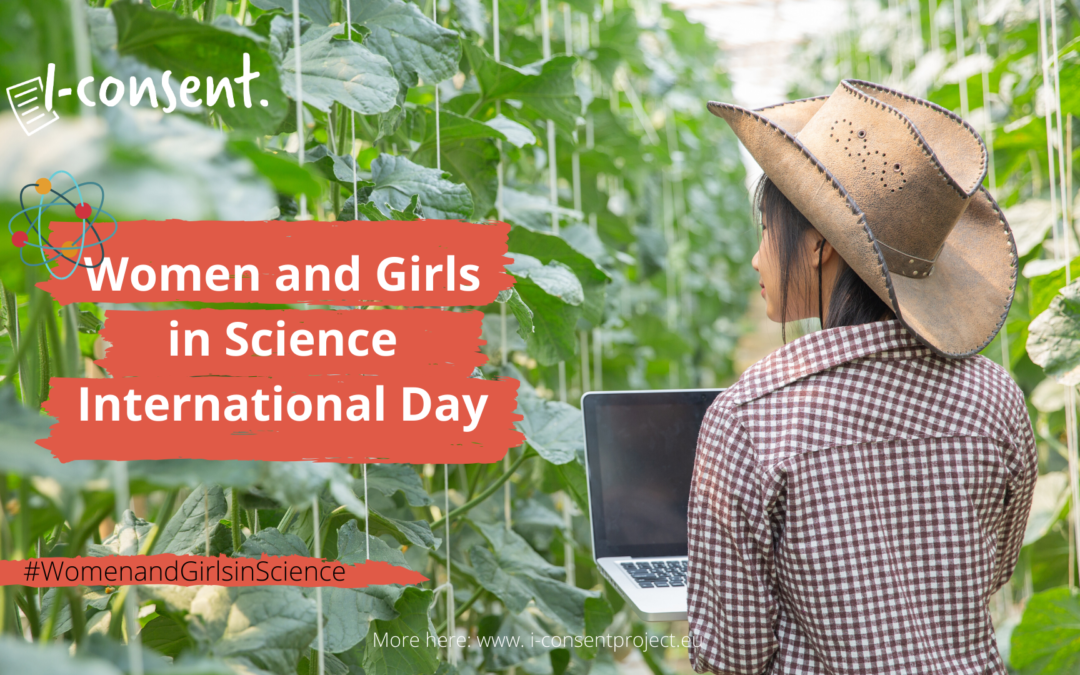As every year, i-CONSENT joins the celebration of Women and Girls in Science International Day. Not only as a matter of solidarity but also as a way of defending social justice in the pursuit of gender equality. In 2020 the i-CONSENT project is reaching its final stages and we wanted to share a compilation of some of the efforts the project has made to contribute and work towards gender equality in clinical trials.
Deliverable 1.2 (FISABIO). Report on gender and age-related issues associated with the acquisition of informed consent
The objective of this document was to analyse and explain gender differences in communication in order to tailor the Informed Consent Process. The document includes differences about the patterns of communication, use of language, social media and Internet. Find the full document here.
Deliverable 1.3 (LUMSA). Ethical and legal review of Informed Consent
This report’s aim was to examine the situation of the general ethical and legal framework for women and minors taking part in clinical research. In this sense, the deliverable wanted to verify how the European Directive has been transposed into national legislations of EU Member States. The report recommended that possible interactions between changes in women’s physiological conditions and the use of experimental pharmaceuticals should be clearly conveyed in the informed consent process, with reference to the implications related to the fertility condition and the possible pregnancy and possible damages to the embryos and foetuses. Find the deliverable here.
Deliverable 2.3 (OPBG). The impact of ICT on health literacy in different groups
This task consists of an analysis of the impact of ICT on health literacy and comprehension of IC in different groups including women and girls, different age groups, ethnic or religious groups, etc. This study, which is pending on official approval and is not yet published, will result in a scientific publication.
Task 2.5 (MRF). The ethics of informed consent in novel treatment including a gender perspective
MRF’s goal with this investigation was to develop innovative methods for the active engagement and participation of women in clinical trials, based on the opportunities offered by social media and ICT tools. For this purpose, the team carried out a thorough literature review, a revision of the findings in one of the project’s WPs and an exploration of the specific characteristics in communication strategies targeting a female audience in different websites, social media pages and apps.
Deliverable 3.1 (FISABIO). Development of 3 Informed Consent processes for trials with vaccines
This project deliverable focuses on the development of three Informed Consent processes for trials with vaccines for adolescents, pregnant women and adults. In order to develop tailored informed consent materials for each group (webpage, explanatory videos, infographics, etc.), small groups of potential study participants from the region of Valencia (Spain) were involved in several design thinking sessions and in a survey. The final work is a collaboration between experts from different scientific fields, physicians, nurses, communication specialists and the trial potential participants themselves. The materials will be soon available on our website in three languages: Spanish, English, and Romanian.
Design thinking session with pregnant women
Pregnant women have largely been excluded from clinical trials due to them being classified as “vulnerable population”. However, participation of pregnant women in clinical trials is the only way to gain evidence about the safety and efficacy of drugs in pregnancy. Owed to the complexity of pregnancy and the relationship between the woman and the foetus, it is important to consider the specific needs and preferences of these participants. Therefore, a focus group session was held, aiming at educating women about clinical trials informed consent. During this session, the participants could also give their feedback on specific questions or issues they would like to see reflected in these documents, and the specific format that should be used. Divided into groups, corresponding to the specific sections of the informed consent, seven women and a midwife from the Spanish town of Elche shared their experience, worries and opinions on a hypothetical participation in Respiratory Syncytial Virus vaccine clinical trial. Later, this information was reflected in a website-based informed consent and an explanatory video, described for deliverable 3.1. Read more on an article on our website.
Woman and Girl in Science International Day 2019
Coinciding with the celebration of last year’s Women and Girls in Science International day, i-CONSENT (MRF) identified some of the main problems women face when participate in clinical trials. Generic informed consent documents, access or family reconciliation within others. Consult the full version of the article here.
VI ANCEI Congress
The National Spanish Association of Ethical Committee’s 2019 Congress was organised under the idea of improving the ethical debate around the biomedical investigation. The i-CONSENT project did not want to miss the opportunity of placing in the agenda a focus on gender perspective in clinical investigation. The result was the presentation of a poster (Fisabio, GSK, UCV) you can find here here.
Are you missing information or have any question or content suggestion? Contact us here.
